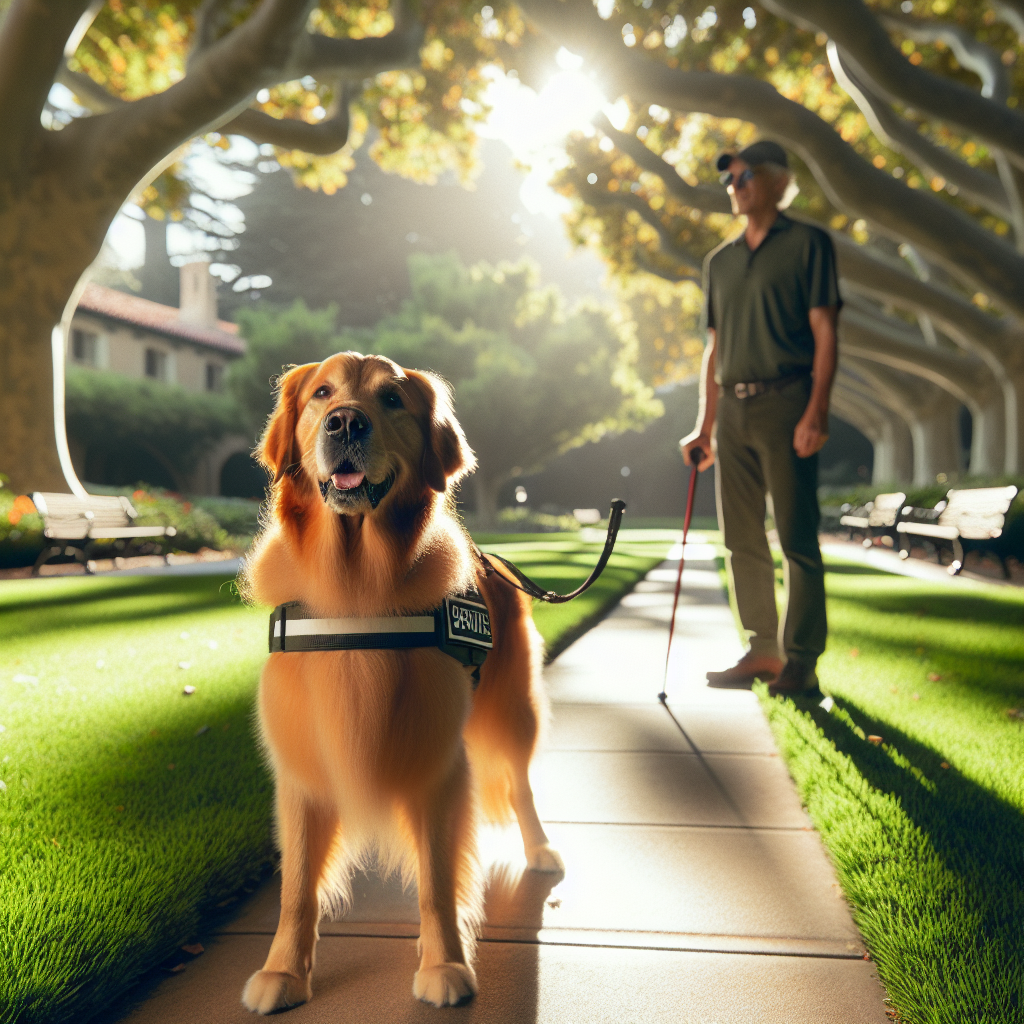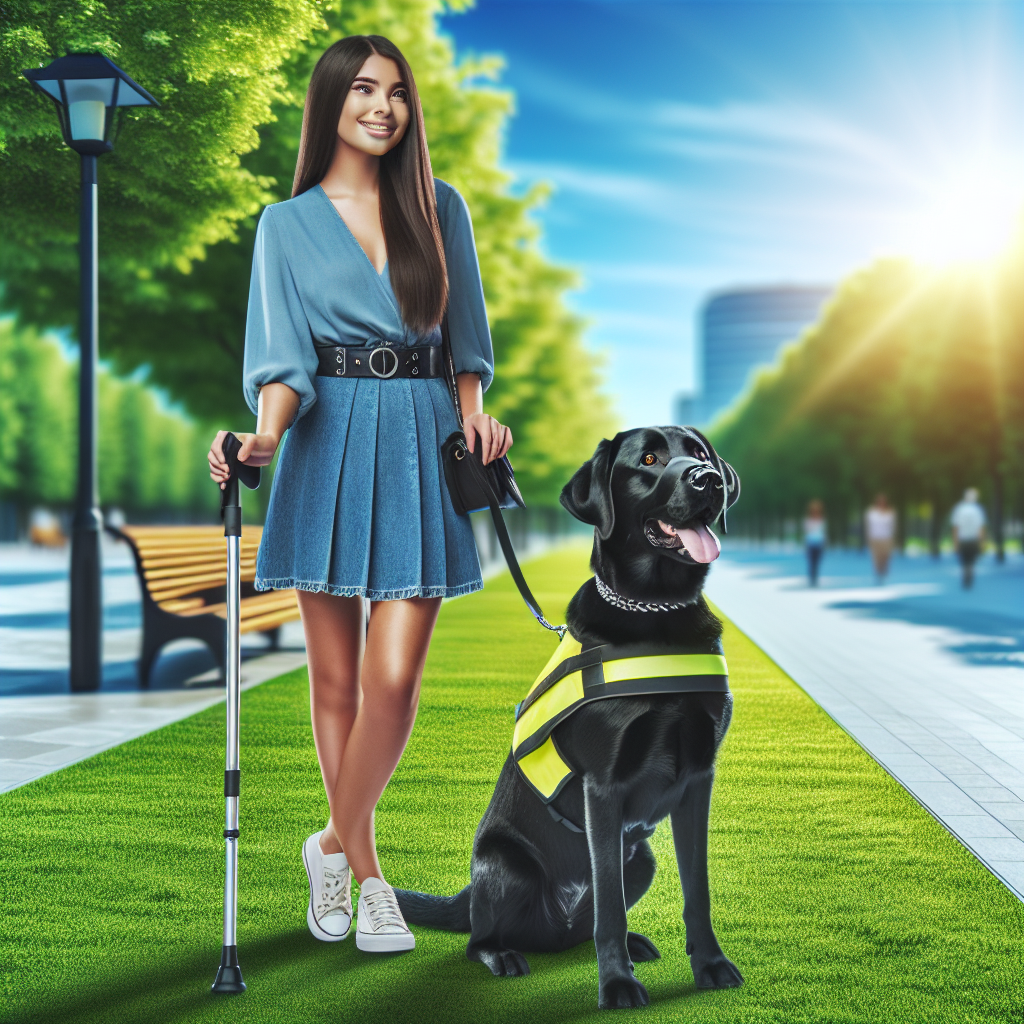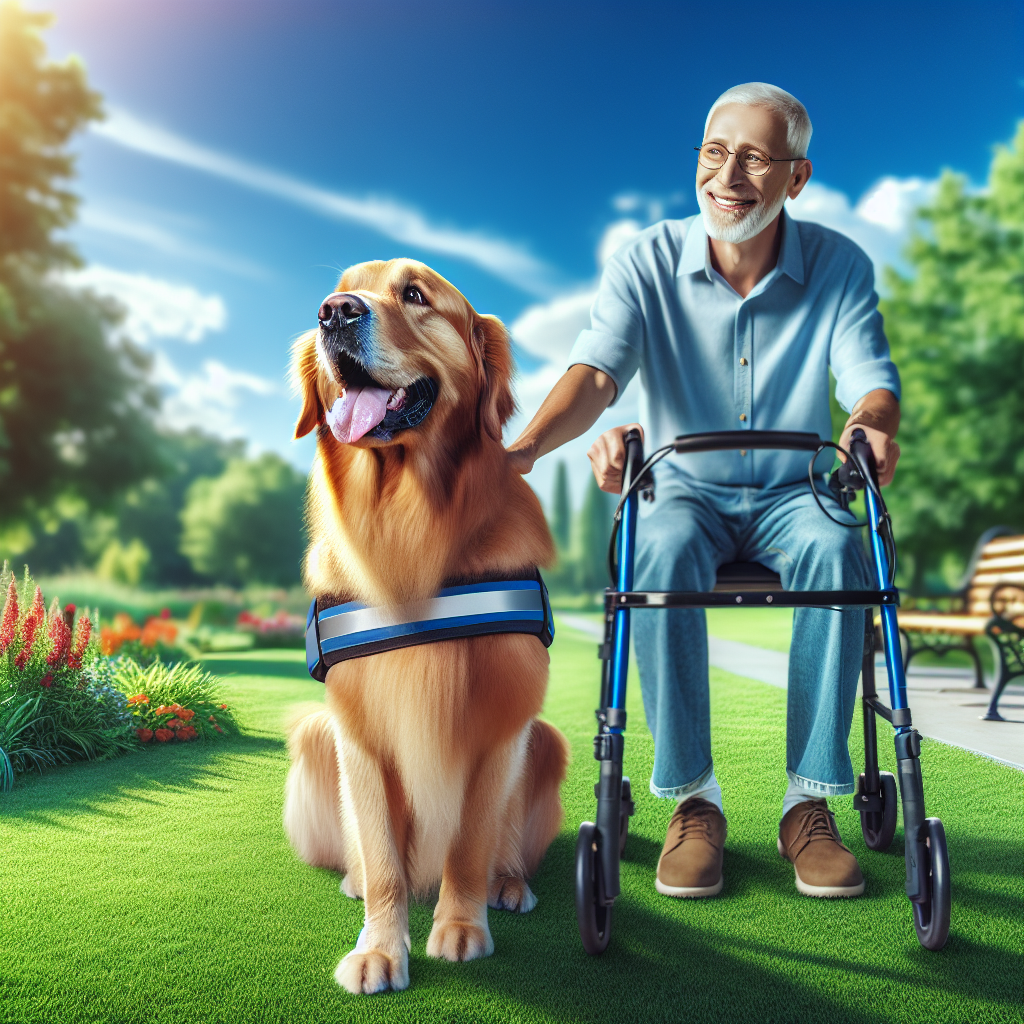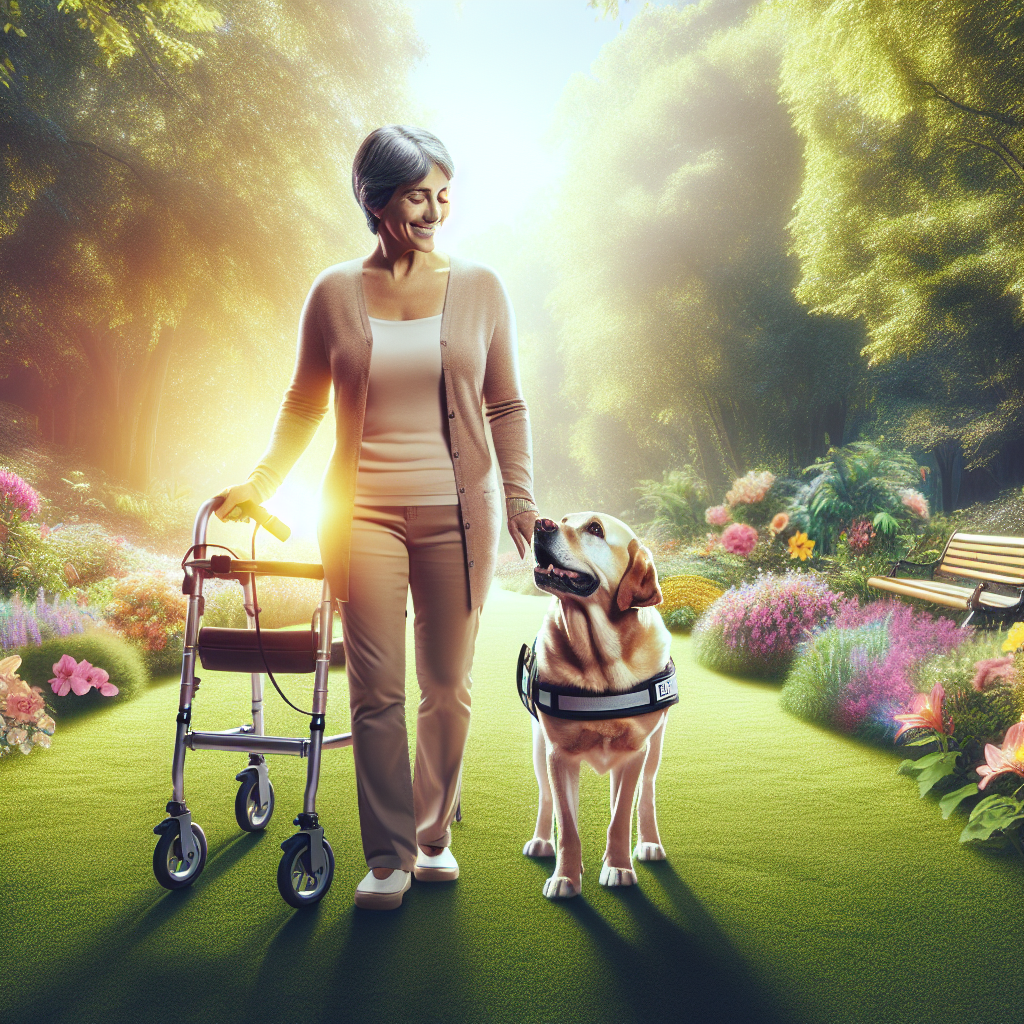Learn How to Train Your Dog to Be a Service Dog!
Service dogs play a critical role in the lives of individuals with disabilities, offering not only physical assistance but also emotional support. These specially trained dogs are equipped to perform various tasks that help mitigate their handler's specific challenges, ranging from mobility assistance to alerting their owners about medical issues.
Understanding the role of service dogs begins with recognizing their diverse functions. Here are some key duties they perform:
- Mobility Assistance: Helping individuals with physical disabilities navigate their surroundings by providing balance and support.
- Medical Alerts: Alerting their owners to conditions such as seizures, low blood sugar, or other medical emergencies.
- Psychiatric Support: Assisting individuals with mental health conditions by providing grounding during anxiety attacks or reminding them to take medication.
- Guide Work: Helping visually impaired individuals navigate their environment safely.
These dogs undergo extensive training to ensure they can perform their tasks reliably and safely. The bond between a service dog and their handler is profound, often resulting in increased independence and improved quality of life.
To aid in this journey, it’s essential to provide your dog with appropriate nutrition and care. Treat your furry friend to the joy they deserve with our range of delicious and nutritious dog treats. Visit Happypup.dog for more information on how to support your dog’s training and well-being!
Key Qualities Your Dog Should Possess

When considering how to train your dog to be a service dog, it is crucial to identify the key qualities that make a dog suitable for this important role. Not every dog possesses the traits required to become a service dog, and recognizing these qualities early on can help streamline the training process.
Here are some essential traits that a service dog should have:
- Temperament: A calm and stable demeanor is vital. Service dogs must be able to remain composed in various situations, including crowded places or during stressful events.
- Intelligence: The ability to learn commands and tasks quickly is essential. A smart dog will adapt to training more effectively and respond to cues without hesitation.
- Socialization: Service dogs should be well-socialized, meaning they are comfortable around other people, animals, and different environments. This quality helps them to navigate various social settings without becoming anxious or aggressive.
- Focus: A strong ability to concentrate on their handler is crucial. Service dogs must be attentive and focused on their tasks, ensuring they provide the necessary support.
- Trainability: A willingness to learn and follow commands is imperative. Dogs that are eager to please their owners tend to excel in training.
By assessing these qualities, you can determine if your dog has the potential to become a service dog. If your dog exhibits these traits, you’ll be one step closer to embarking on the rewarding journey of training them to provide invaluable assistance.
Basic Obedience Training for Service Dogs
Once you've identified a suitable candidate for service dog training, the next step is to instill basic obedience commands. These foundational skills are crucial, as they set the stage for more advanced tasks and ensure that the dog can operate effectively in various environments.
Here are some fundamental commands that every service dog should master:
- Sit: Teaching your dog to sit on command is essential for controlling their behavior, especially in public spaces. It encourages calmness and focus.
- Stay: The stay command helps keep your dog in one position until you release them. This is particularly useful in busy environments where distractions abound.
- Come: A reliable recall is vital for any service dog. Your dog should come to you immediately when called, ensuring safety and control.
- Down: This command teaches your dog to lie down on command, promoting relaxation and composure.
- Leave it: This command is crucial for preventing your dog from picking up or engaging with potentially dangerous or distracting items.
Incorporating positive reinforcement techniques, such as treats and praise, will significantly enhance your dog's learning experience. Consistency and patience are key; practice these commands in various environments to help your dog generalize their skills. As your dog becomes proficient in these basic commands, you can gradually introduce more complex tasks specific to their service role.
Advanced Training Techniques for Service Dogs

After successfully establishing a foundation of basic obedience, the next phase involves implementing advanced training techniques. These methods are essential in equipping your service dog with the specialized skills they need to assist you effectively in daily activities.
Here are some advanced training techniques that can significantly enhance your dog's capabilities:
- Task-specific Training: Identify the specific tasks your dog needs to perform, such as retrieving items, providing stability support, or alerting you to medical conditions. Use targeted training sessions to focus on these tasks, breaking them down into manageable steps.
- Desensitization: Service dogs often need to navigate crowded or noisy environments. Gradually expose your dog to different stimuli, rewarding them for remaining calm. This technique helps them become more comfortable in various situations.
- Socialization: Regularly introduce your dog to new people, animals, and environments. This exposure is vital for developing a well-rounded service dog capable of handling diverse social interactions.
- Public Access Training: This training involves teaching your dog how to behave in public spaces, such as restaurants, stores, and airports. Your dog should learn to remain calm and focused, ignoring distractions.
- Handler Focus: Teach your dog to maintain focus on you, especially in distracting environments. Use cues and rewards to reinforce this behavior, ensuring your dog remains attentive to your commands.
Utilizing positive reinforcement throughout these advanced training sessions will motivate your dog and strengthen your bond. Tailor your training sessions to fit your dog's pace and personality, ensuring a rewarding experience for both of you. Mastering these advanced techniques will empower your service dog to provide valuable assistance while maintaining composure in public settings.
Socialization and Public Access Training

Socialization and public access training are critical components in the development of a well-rounded service dog. These aspects not only prepare your dog to assist you in various tasks but also ensure they can confidently navigate the complexities of public environments.
Effective socialization involves exposing your dog to a variety of experiences, people, and animals. This process helps your dog become comfortable in diverse situations, reducing fear or anxiety that may arise in unfamiliar settings. Here are some key strategies for successful socialization:
- Start Early: Puppies are particularly receptive to new experiences. Begin socializing them as early as possible, exposing them to different sounds, sights, and smells.
- Gradual Exposure: Introduce your dog to new environments and situations gradually. Start with less stimulating settings before progressing to busier, more challenging scenarios.
- Positive Reinforcement: Reward your dog with treats and praise when they exhibit calm behavior in new situations. This method reinforces positive associations with their experiences.
Public access training is equally important, as it prepares your dog to behave appropriately in public settings, such as restaurants, stores, and public transport. Here are essential elements of public access training:
- Calm Behavior: Teach your dog to remain calm and focused amidst distractions. Practice in crowded areas, rewarding them for good behavior.
- Command Obedience: Ensure your dog reliably responds to basic commands like 'sit,' 'stay,' and 'heel.' This obedience is crucial for managing your dog in public settings.
- Desensitization: Gradually expose your dog to common public distractions, such as loud noises, moving objects, and other animals, to help them stay composed.
By prioritizing socialization and public access training, you are setting your service dog up for success. A well-socialized dog will not only assist you more effectively but will also enhance your quality of life, allowing you to navigate public spaces with confidence.
Maintaining Your Service Dog's Skills Over Time

Once your dog has mastered the essential skills needed for service work, it's crucial to maintain those skills over time. Just like any other learned behavior, consistent practice and reinforcement are key to ensuring your service dog remains reliable and effective.
Regular training sessions are vital for keeping your dog's skills sharp. Here are some effective strategies for maintaining your service dog's abilities:
- Consistent Practice: Schedule regular training sessions that incorporate both obedience commands and specific tasks your dog performs as a service animal. Short, frequent sessions are often more effective than long, infrequent ones.
- Variety in Training: Keep your training sessions engaging by introducing new tasks or challenges. This can prevent your dog from becoming bored and can help reinforce their problem-solving skills.
- Social Reinforcement: Continue to expose your service dog to different environments and situations. This ensures they remain comfortable and confident in public settings, which is essential for their role.
It’s also important to monitor your dog’s health and well-being. Regular veterinary check-ups can help identify any physical issues that might affect their performance. Additionally, pay attention to their mental and emotional state. A stressed or anxious dog may struggle to perform their duties effectively.
Finally, remember that maintaining your service dog’s skills is a partnership. Your ongoing commitment to training and care will reflect positively on your dog's performance. Treat your furry friend to the joy they deserve with our range of delicious and nutritious dog treats at Happypup.dog. These treats can be a great motivator during training sessions, ensuring your dog remains enthusiastic and eager to learn.






